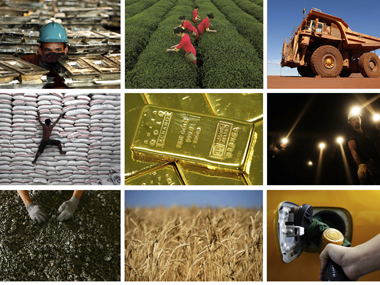By Shanmuganathan Nagasundaram
Upon Manmohan Singh taking over the finance ministry, one of his first objectives was to revive the “animal spirits” that drove the growth in the preceding few years. In the next few days, we will hear the all-too-familiar tones of how the government and industry must work together and mechanisms such as public-private partnerships should be revived.
I am also sure that industry bodies such as CII and Ficci will come up with a long wish-list of growth-enhancing policies/subsidies that are needed. I certainly don’t intend adding to that list here. But I do want to point out the core issue that has been missed in all of the analyses that I have seen emanating from the government as well as industry bodies: that this is not a cyclical slowdown in a structural bull-market as far as the India GDP story, or for that matter, the world GDP growth is concerned.
[caption id=“attachment_361709” align=“alignleft” width=“380” caption=“All Keynesian stimulus policies would actually go on to worsen the imbalances rather than revive growth. Reuters”]
 [/caption]
[/caption]
What we are witnessing, globally as well as in India, is the end-game for fiat currencies (for the scholarly-oriented, the present conditions could be best summarised as the “Crack-Up Boom,” as defined by Ludwig von Mises, an economist from the liberal, laissez faire-oriented Austrian School of Economics.). From now on, all Keynesian stimulus policies would actually go on to worsen the imbalances rather than revive growth.
So here is my list of dos and don’ts for the PM. For the sake of brevity, there’s a short list of four.
Don’t lean on RBI to cut interest rates: Globally, as well as in India, the story of central banking has been one of unmitigated disaster. The apparent smoothening of the boom-bust cycles has never happened, and if anything, has been accentuated several fold.
When the epitaph of fiat currencies is written later this decade, the RBI would have much to answer for. But one of the few decisions that has not been an outright “F” is its decision not to cut rates at the last monetary policy review meeting (in fact, the right thing to do would have been to raise rates, as I have written before: Why the RBI won’t do what it should: raise rates ).
The PM should allow capital formation to occur by having positive after-tax real rates for the saving community. This era of negative real interest rates, as US and Europe have been toying with for the last several years, is not going to revive growth.
Don’t indulge in capital allocation: The very idea that government can allocate capital better than the markets is an absurdity that has no rational basis. So just do away with all this preferential loans and interest rates to various sectors, subsidies to vociferous industries, and preferential tax-treatments, etc. While all of these might have the most honourable of intentions, they just go on to create imbalances and distort the capital allocation process by the markets.
So, if the power sector or the construction industry, laden with unserviceable debts, request a bail-out, just refuse and allow for the liquidation of assets to happen. Do remember that all of the assets will continue to exist well after the bankruptcies, but just that the ownership will change hands from people who cannot manage these businesses to people who think they can utilise the assets to generate meaningful returns. We are merely incentivising incompetence and fraudulent business practices through bailouts.
Don’t run a cradle-to-grave welfare state: The various welfare schemes (whether it be free education or free food or free money or free healthcare or free anything) only go on to create the impression of the state-as-the saviour amongst the masses and bond them to indenture forever.
Given the “socialist” nature of our democracy, some welfare mechanisms are inevitable. But target the subsidies towards the lowest 10 percent of the population or less. The across-the-board subsidies we now have in LPG, diesel, etc, only hurt the poorest of the poor and people on fixed incomes. (When a middle-class household gets subsidised LPG and when a rich individual gets subsidised diesel for his SUV, the bill is paid for by the poor in the form of higher prices for food and other essentials).
Study after study has repeatedly proven that inflation, which is what subsidies result in, hurts the people at the bottom the most.
Don’t continue Pranab-da’s Nehruvian policies: Most of what Pranab-da did or intended to do could be repealed (GAAR, back-dating laws, etc.), but one of the most deplorable and counter-productive acts is the taxation of gold. As I have written for the last several years, I believe gold is massively undervalued and so the common man in doing himself and the country a great favour by accumulating real capital.
However, much as I have a right to believe in gold prices being undervalued, I recognise that the RBI and the government might have reasons to believe that it’s just an overvalued barbaric relic.
And here’s my solution to how everybody could be happy at least on this one issue: when citizens demand gold, instead of importing it, the RBI can sell its holdings of the same. The current account deficit (CAD) won’t increase and the government would be happy; the citizens would be happy with the gold at a fair market price. And I will have the satisfaction of having done my bit as Nietzsche advocated “that which is about to fall deserves to be pushed”.
Shanmuganathan “Shan” Nagasundaramis the founding director of Benchmark Advisory Services - an economic consulting firm. He is also the India Economist for the World Money Analyst_, a monthly publication of_ International Man_. Email:_ shanmuganathan.sundaram@gmail.com
)